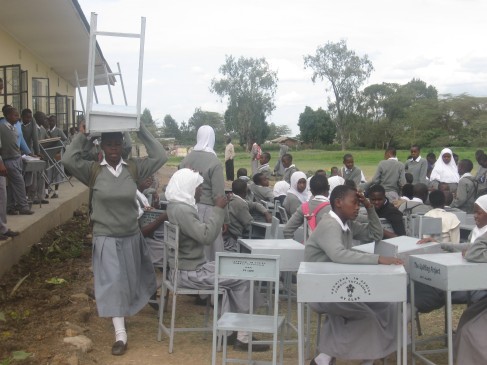As I have mentioned before on this blog, I am very interested in and involved with issues and initiatives in Africa. I have participated in a number of other projects and organizations that have fueled my passion for and informed me about Africa and this background is what led me to want to work with AIA. Here are three reasons why I became and continue be passionate about Africa and its people.
1. Because we are neighbors.
One question that I hear over and over again asks why I am interested in Africa when there is plenty of volunteer and activism work to be done closer to where I live. My honest answer is that I don’t think of it that way. Kindness, respect, and interest in each other does not stop at borderlines or continents. Speaking up for, listening to, working with and helping others can and should cross oceans and transcend boundaries.
2. The people.
The people that I have worked with on African issues, like the AIA staff, students at my university, and the Africans that I have connected with along the way have been talented and inspiring. Their spirit has always galvanized me to continue learning about Africa and to become more and more involved.
3. The amazing things already happening

One of the amazing things happening in Tanzania: students learning in an Olasiti Primary School classroom built by AIA
Although Africa struggles (as all continents struggle) with issues like poverty, AIDS, and conflict there are many accomplishments and triumphs happening there every day that the Western world often misses out on hearing about. Rwanda has the highest level of female representation in its national parliament of any country in the world. The rivers of the Democratic Republic of Congo are estimated to be able to provide hydro-electric power for the entire continent. And according to the UN the rate of new HIV infections in 15-49 year old South Africans decreased from 2.35% in 2001 to 1.49% in 2009.
-Haley Aubuchon
If you too are interested in Africa leave a comment or tweet us @achieveinafrica with your reasons why.







